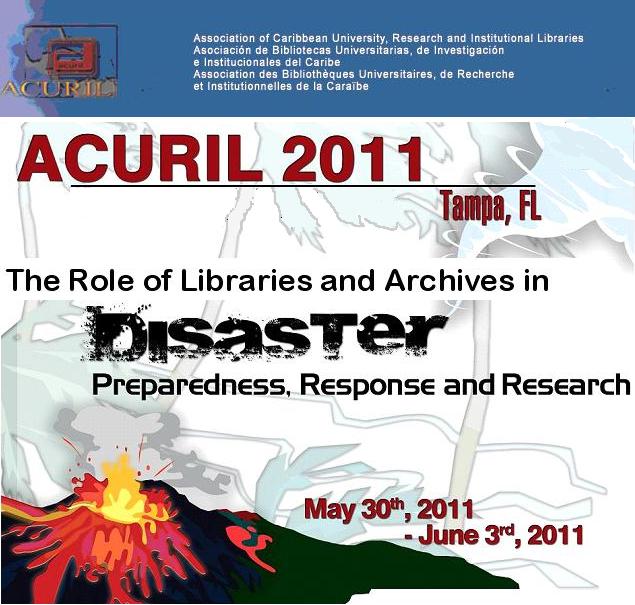Disaster planning preparedness and recovery of libraries of national Importance
Theme
Response of libraries and archives to disasters: Preserving Memories, Community, and Restoring Hope
Start Date
1-6-2011 11:00 AM
End Date
1-6-2011 11:30 AM
Document Type
Presentation
Description
Libraries and information centres are vulnerable to a whole range of disasters. No library is entirely free from risk and disasters. They can happen anywhere. Yet some libraries of national importance in Delhi still do not have appropriate disaster management procedures. Disaster management, however, has been traditionally been a neglected field of the librarianship in India. The main objective is to explore and identify various needs and lacunas in the progress made towards disaster prevention and planning in the libraries of national importance in Delhi. Literature review revealed a very little data available on experience and response to a disaster by the librarians of India. Of course enough data was available pertaining to the sharing of experiences by the librarians and administrators of the developed countries. This paper takes a look at the case of some important libraries of Delhi where disaster management is still an alien term for librarians with practically no training and understanding for disaster management as such. The study highlights the central role of the written disaster control plan and emphasizes the need for these to be managed and supported by risk assessments and regular inspections of buildings and equipment, the identification and use of reliable expert advice, staff training programmes and contingency planning. The study have led to inference that the majority of the librarians investigated were lacking awareness related to disaster control plans and were generally under prepared for any potential disasters which may occur. This was attributed to inadequate resources, the apathetic attitude of library staff, inadequate trained manpower, lack of staff to write and implement a disaster control plan as well as lack of a model, inadequate reference material and documentation which keeps them updated by learning from their past mistakes and expanding their learning base. The paper concludes that all libraries and archives need to take practical measures to minimize the risk of disaster and be prepared to react quickly and effectively when a disaster occurs. Disaster training is an essential requirement of any disaster management programme.
Disaster planning preparedness and recovery of libraries of national Importance
Libraries and information centres are vulnerable to a whole range of disasters. No library is entirely free from risk and disasters. They can happen anywhere. Yet some libraries of national importance in Delhi still do not have appropriate disaster management procedures. Disaster management, however, has been traditionally been a neglected field of the librarianship in India. The main objective is to explore and identify various needs and lacunas in the progress made towards disaster prevention and planning in the libraries of national importance in Delhi. Literature review revealed a very little data available on experience and response to a disaster by the librarians of India. Of course enough data was available pertaining to the sharing of experiences by the librarians and administrators of the developed countries. This paper takes a look at the case of some important libraries of Delhi where disaster management is still an alien term for librarians with practically no training and understanding for disaster management as such. The study highlights the central role of the written disaster control plan and emphasizes the need for these to be managed and supported by risk assessments and regular inspections of buildings and equipment, the identification and use of reliable expert advice, staff training programmes and contingency planning. The study have led to inference that the majority of the librarians investigated were lacking awareness related to disaster control plans and were generally under prepared for any potential disasters which may occur. This was attributed to inadequate resources, the apathetic attitude of library staff, inadequate trained manpower, lack of staff to write and implement a disaster control plan as well as lack of a model, inadequate reference material and documentation which keeps them updated by learning from their past mistakes and expanding their learning base. The paper concludes that all libraries and archives need to take practical measures to minimize the risk of disaster and be prepared to react quickly and effectively when a disaster occurs. Disaster training is an essential requirement of any disaster management programme.


